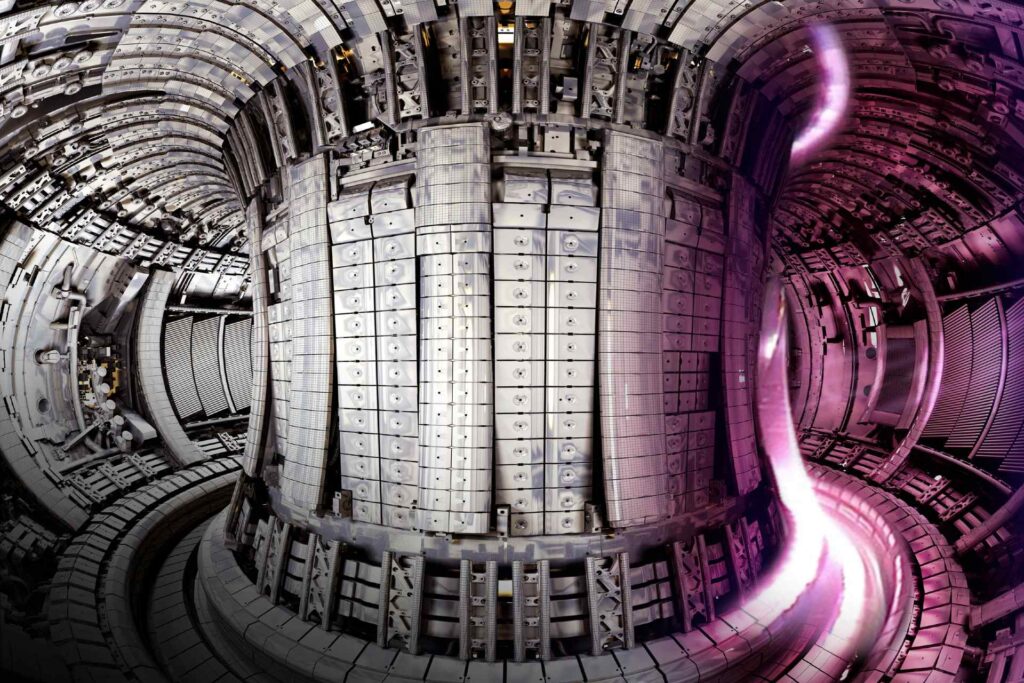The UK is investing in the future of nuclear fusion with a £650m boost to the ‘Fusion Futures Programme.’ In September 2023, the Department for Energy Security and Net Zero stated its interest in developing the sector, with the funding confirmed on 16 October.
Up to £200m will be allocated to the development of a new Fuel Cycle Testing Facility, which will explore how fuels that power the nuclear plants can be produced in a more sustainable way. Another £200m will de dedicated to R&D projects, coupled with a previously allocated £50m to improve the current Culham campus in Oxfordshire.
Fusion in forward motion
In February 2022, the UK-based JET laboratory broke its own record for the longest fusion reaction time at just over 5 seconds. The following December, the US announced it had created a net energy gain from a fusion reaction. In other words: making more energy from the experiment than was required to go in.
Developing skills in this sector is vital for the progression of nuclear fusion. In order to meet the UK’s 2050 nuclear targets, between 75,000 and 150,000 new roles in fusion and fission will need to be filled. As such, the DESNZ will allocate up to £55m to a new skills program for the Fusion Futures Programme that focuses on upskilling and reskilling. Over 2,200 workers will be targeted with the help of university partnerships.
Nuclear and Networks Minister Andrew Bowie said: “With world-leading scientific talent and expertise based here in the UK, we have a golden opportunity to be at the cutting-edge of fusion and lead the way in its commercialisation as the ultimate clean energy source.
“The Fusion Futures Programme, backed by £650 million, will be at the core of delivering this, training thousands of people across the country and ensuring we have the best possible facilities to develop this exciting new technology.”
Objectives for UK fusion
Since the UK set out its first fusion energy strategy in 2021, the government says the UK has made significant progress on its objectives, which are:
- For the UK to demonstrate the commercial viability of fusion by building a prototype fusion power plant in the UK that delivers net energy.
- For the UK to build a world-leading fusion industry that supports different fusion technologies and is capable of exporting fusion technology in subsequent decades.
By 2040, the UK aims to complete its West Burton A power station as the first commercial prototype for a nuclear fusion power reactor.
Business Secretary Jacob Rees-Mogg said, “Over the decades we have established ourselves as pioneers in fusion science and as a country our capabilities to surmount these obstacles is unparalleled, and I am delighted to make an announcement of a vital step in that mission.”
Header image credit to EUROfusion

